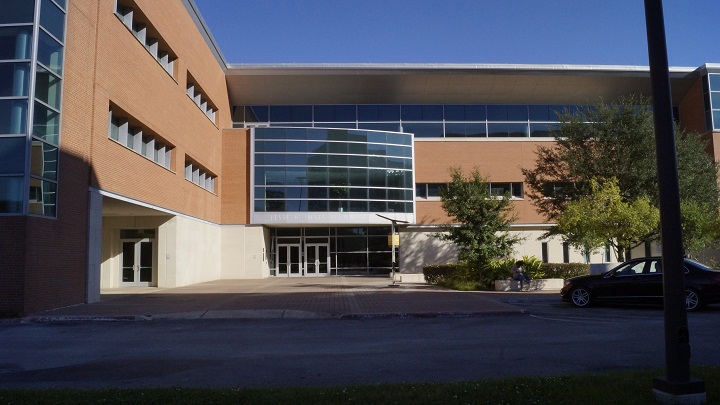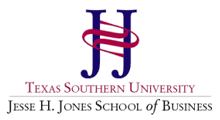
Social
Digital Humanities, Archives and the Global Classroom
Applicable Theme
Event
Location
RM 242, JHJ School of Business, Houston
Start Date
27-10-2016 3:00 PM
End Date
27-10-2016 4:00 PM
Description of Abstract
There are several initiatives at Morehouse that take advantage of technology and the global classroom. In particular, the Pan-African Pedagogy Project, New African Diasporas Study Abroad Program, the Building Africana Leadership for the 21st Century, and the Global African Ethical Texts Archival (GAETA) Project have all sought to invigorate and expand the way that we teach. The New African Diasporas Project is a unique program in that it is a study abroad program of the Murid Islamic network, in which the students travel to Senegal, Italy, and China in one semester. The development of this Morehouse initiated program has necessitated a lot of coordination and development online. In addition, all of the efforts done through all of the projects will be archived. In a discussion of creating a global classroom, not only will the importance of collaboration be discussed, but we will also talk about the importance and methods of digital archiving.
About GAETA: We are currently in the process of developing the Global African Ethical Texts Archival (GAETA) Project, which creates an accessible, web-based, geographic database of texts, significant locations and events on African Diasporic history. What distinguishes the GAETA project is that it is the first effort to digitally map Africana ethics and culture from its ancient origins to the contemporary period. Accessing the rich holdings that we have in the Atlanta university Center’s (AUC) Woodruff Library, the Project seeks to map the relationship between identity and ethics in the African historic and transnational experience using digitized oral histories, texts, videos, maps, graphics, music, and other salient objects. In GAETA we are creating a learning tool and application that will facilitate student and professional scholarly research into the Africana Humanities.
The project is at once archival, exploratory, and experiential. Some of the key questions that the project seeks to interrogate are:
1) How is African/Black identity articulated in various geographic locations around the world?
2) How is culture used by African people to proclaim a social justice message within a larger cultural worldview?
3) What are the most significant operative values and ethics among African populations as they are captured in textual form?
4) What type of evidence will allow us to explore ethics and identity? What is an ‘ethical text’ and why is it significant within Africana Studies?
This archive is being built out in several modules all directly tied to courses within Africana Studies. The most developed of these digital mapping projects is that produced by students in the course, AAS 399, Special Topics: The Gullah Geechee Experience: Interdisciplinary Approaches, which can be accessed here: http://timemapper.okfnlabs.org/samoryba/gullahhistorytimemappertemplatexlsx
Digital Humanities, Archives and the Global Classroom
RM 242, JHJ School of Business, Houston
There are several initiatives at Morehouse that take advantage of technology and the global classroom. In particular, the Pan-African Pedagogy Project, New African Diasporas Study Abroad Program, the Building Africana Leadership for the 21st Century, and the Global African Ethical Texts Archival (GAETA) Project have all sought to invigorate and expand the way that we teach. The New African Diasporas Project is a unique program in that it is a study abroad program of the Murid Islamic network, in which the students travel to Senegal, Italy, and China in one semester. The development of this Morehouse initiated program has necessitated a lot of coordination and development online. In addition, all of the efforts done through all of the projects will be archived. In a discussion of creating a global classroom, not only will the importance of collaboration be discussed, but we will also talk about the importance and methods of digital archiving.
About GAETA: We are currently in the process of developing the Global African Ethical Texts Archival (GAETA) Project, which creates an accessible, web-based, geographic database of texts, significant locations and events on African Diasporic history. What distinguishes the GAETA project is that it is the first effort to digitally map Africana ethics and culture from its ancient origins to the contemporary period. Accessing the rich holdings that we have in the Atlanta university Center’s (AUC) Woodruff Library, the Project seeks to map the relationship between identity and ethics in the African historic and transnational experience using digitized oral histories, texts, videos, maps, graphics, music, and other salient objects. In GAETA we are creating a learning tool and application that will facilitate student and professional scholarly research into the Africana Humanities.
The project is at once archival, exploratory, and experiential. Some of the key questions that the project seeks to interrogate are:
1) How is African/Black identity articulated in various geographic locations around the world?
2) How is culture used by African people to proclaim a social justice message within a larger cultural worldview?
3) What are the most significant operative values and ethics among African populations as they are captured in textual form?
4) What type of evidence will allow us to explore ethics and identity? What is an ‘ethical text’ and why is it significant within Africana Studies?
This archive is being built out in several modules all directly tied to courses within Africana Studies. The most developed of these digital mapping projects is that produced by students in the course, AAS 399, Special Topics: The Gullah Geechee Experience: Interdisciplinary Approaches, which can be accessed here: http://timemapper.okfnlabs.org/samoryba/gullahhistorytimemappertemplatexlsx

